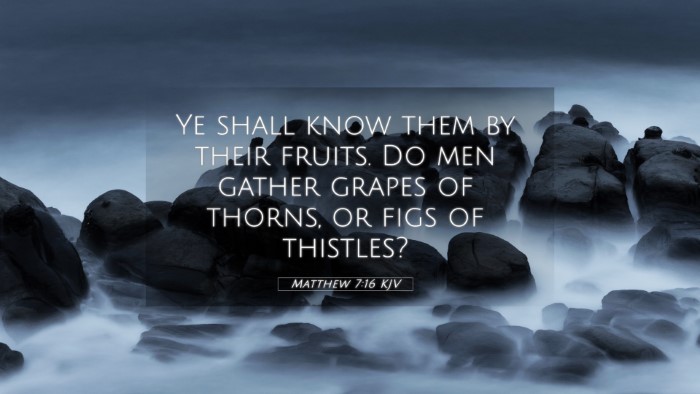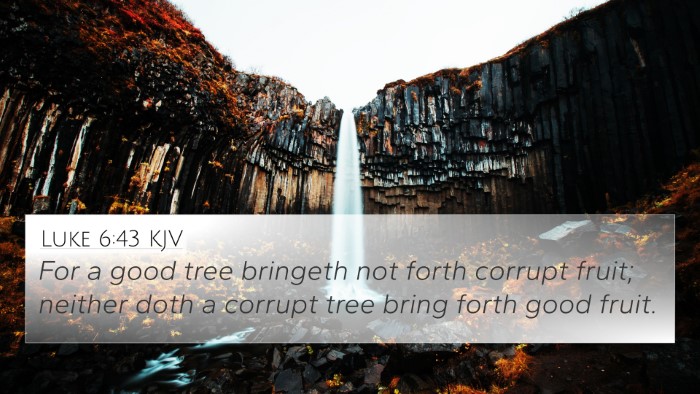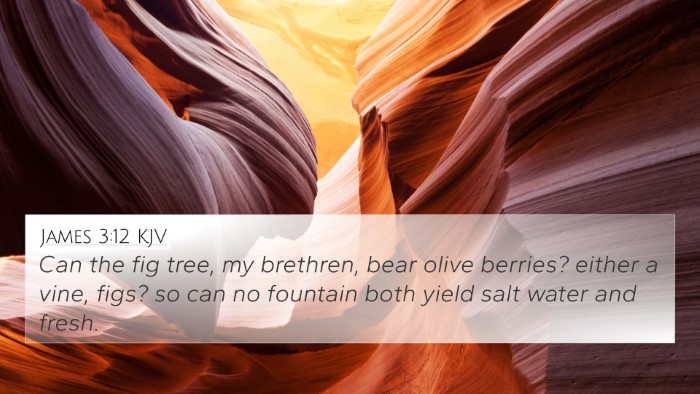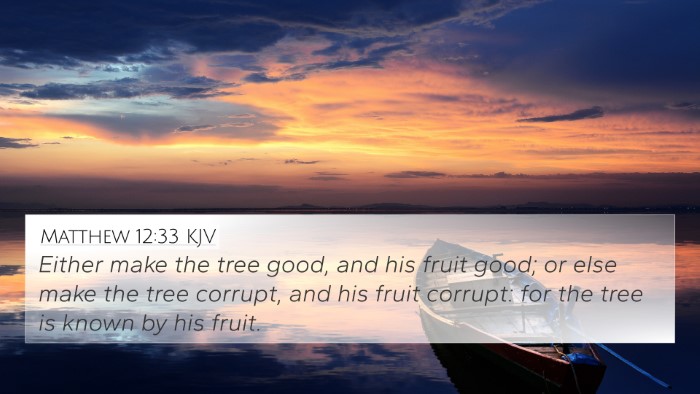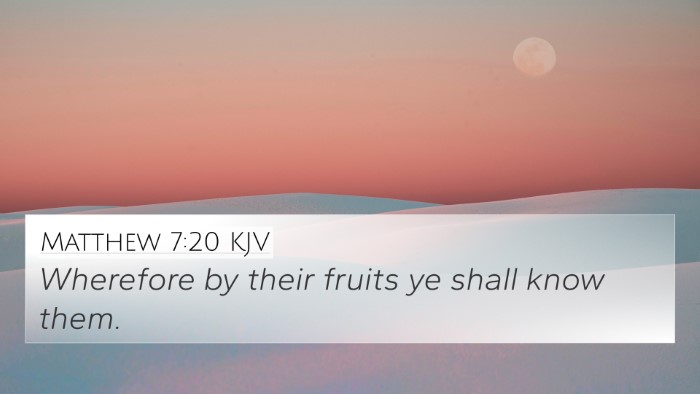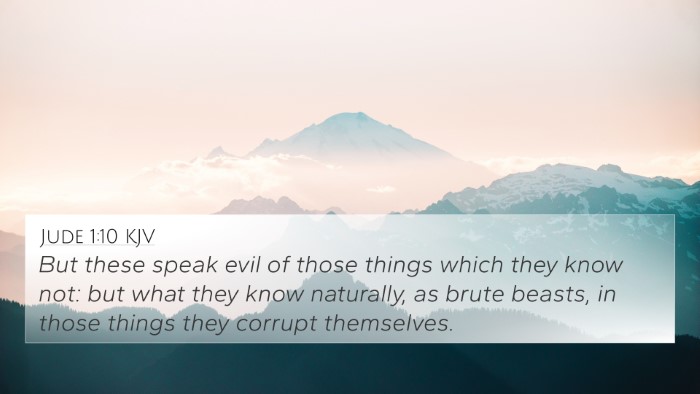Understanding Matthew 7:16
Verse: "You will recognize them by their fruits. Are grapes gathered from thornbushes, or figs from thistles?" (Matthew 7:16)
This verse emphasizes the principle of discernment within Christian doctrine. As explained by multiple public domain commentaries, it highlights the necessity for believers to judge the authenticity of people's character and teachings based on observable behaviors and results, which are metaphorically referred to as "fruits."
Summary of Insights
- Matthew Henry's Commentary: Henry interprets "fruits" to signify the observable outcomes of one's life and teachings. He stresses that true followers of Christ will produce good deeds, contrasting them with false prophets who may generate confusion and mislead believers.
- Albert Barnes' Notes: Barnes discusses the imagery used, clarifying that just as one would not expect to harvest grapes from thornbushes, similarly, good behavior cannot arise from falsehoods. This verse serves as a caution to be vigilant in recognizing the true nature of individuals claiming to be of God.
- Adam Clarke's Commentary: Clarke elaborates on the call for discernment, noting the distinction made between true prophets and their false counterparts. He argues that the "fruits" extend beyond mere actions to include the doctrine and message one teaches.
Thematic Connections
This verse can be connected to several other biblical passages that underscore the theme of discernment and the evaluation of one's spiritual integrity:
- Galatians 5:22-23: The fruits of the Spirit, which highlight the characteristics believers should possess.
- Luke 6:43-45: A similar account where Jesus explains a good tree bearing good fruit and a corrupt tree producing bad fruit.
- James 3:12: The impossibility of a fig tree yielding olives, reinforcing the message about the nature of true and false prophets.
- 2 Peter 2:1-3: A warning against false teachers who exploit the faithful and where their destructive ways can cause distress.
- Matthew 12:33: Where Jesus makes a similar declaration about trees and their fruit, emphasizing the condition of the heart.
- 1 John 4:1: Encourages believers to test the spirits to discern who is from God and who is not.
- Proverbs 20:11: Affirmation that even a child is known by their deeds, illustrating the universal principle that behaviors reveal inner character.
- John 15:8: Jesus speaks about glorifying God through bearing much fruit, solidifying the link between discipleship and positive outcomes.
Inter-Biblical Dialogue
This verse creates an inter-Biblical dialogue by linking the concepts of discernment and authenticity found throughout both the Old and New Testaments. The notion of identifying 'fruits' leads to a deeper understanding of what defines a true follower of God as seen in:
- Old Testament teachings on law and righteousness.
- The New Testament emphasis on grace and true faith manifesting in action through love and good deeds.
Tools and Resources for Further Study
For those interested in deepening their understanding of Matthew 7:16 and engaging in comparative Bible verse analysis, consider utilizing:
- Bible Concordance: Essential for locating similar themes and verses across the scriptures.
- Cross-Reference Bible Study Guides: Helpful tools that outline connections between verses.
- Comprehensive Bible Cross-Reference Materials: Resources that provide thematic analysis to give more context to the chosen verse.
- Cross-Reference Systems: Understand how to analyze and interpret the Bible using various cross-referencing methods.
- Bible Reference Resources: For sermon preparation and deeper theological insight.
Conclusion
Matthew 7:16 serves as a critical teaching on the importance of discernment in spiritual matters. By examining the fruits of a person’s life, believers can guard against deception and uphold the integrity of their faith. This verse encourages introspection and vigilance, signifying that outward actions reflect inner spiritual realities.

